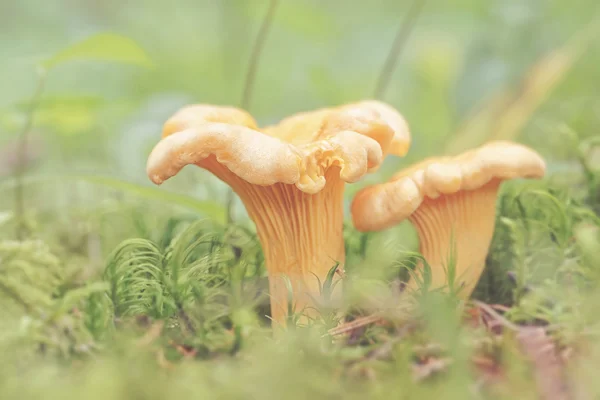Mushrooms offer several health benefits, including potential anti-cancer properties. Research has shown that mushrooms can help decrease the risk of cancer, thanks to compounds like ergothioneine and conjugated linoleic acid. For instance, a recent discovery by scientists shows promising evidence that certain mushrooms harbor potent anti-cancer properties. Another review of 17 cancer studies revealed that eating just 18 grams of mushrooms daily could lower the risk of cancer by 45%. Additionally, clinical trials have demonstrated promising results in cancer patients, with some experiencing cancer regression or significant symptom improvement when given mushroom treatment.
About the recent study
This study, published in Medical Sciences Forum, investigated the potential of tiny molecules called “small RNAs” (sRNAs) found in three common mushroom species:
- Golden Chanterelle (Cantharellus cibarius): This bright yellow mushroom contains polysaccharides and other bioactive compounds that have been shown to inhibit cancer cell growth and proliferation in lab studies.
- Porcini (Boletus edulis): Extracts from this popular edible mushroom have been found to induce apoptosis (programmed cell death) in cancer cells and may also boost the immune system.
- Portobello (Agaricus bisporus): also known as the portabella mushroom, is a large, mature cultivar of the white button mushroom (Agaricus bisporus). It has a deep, meaty flavor and a firm texture, making it a popular ingredient in vegetarian and vegan dishes. Some studies have suggested that Portobello mushrooms may have anti-cancer and anti-inflammatory properties. However, more research is needed to confirm these benefits.
Key Findings:
- All three mushroom sRNAs displayed anti-cancer effects, but their effectiveness varied. This suggests specific sequences within the sRNAs hold the key to their power.
- Porcini (BEDB) and Golden Chanterelle (CCI3) emerged as the most potent anti-cancer agents. They killed cancer cells at low doses while sparing healthy cells.
MicroRNAs (miRNAs), another type of small RNA, showed no significant anti-cancer activity. - The BEDB and CCI3 fractions share a highly similar genetic sequence, suggesting a common anti-cancer mechanism.
Reasons these anti-cancer mushrooms should be added in our diet
Here are the top reasons why these anti-cancer mushrooms should be added to our diet for wellness:
Potential anti-cancer properties: Mushrooms are rich in vitamins, nutrients, and antioxidants, and research has shown that they may help guard against cancer. A review of 17 cancer studies revealed that eating just 18 grams of mushrooms daily could lower the risk of cancer by 45%.
Rich in vitamins, nutrients, and antioxidants: Mushrooms are a powerful source of ergothioneine, an amino acid and antioxidant that prevents or slows cellular damage. Some mushroom varieties, such as shiitake, oyster, maitake, and king oyster, have higher amounts of ergothioneine.
Stimulate a healthier gut: The microbiome in our gut is home to organisms and bacteria that play a large role in our health. One way to keep the gut healthy is to stimulate the growth of healthy bacteria in that space with foods such as mushrooms. Research shows that mushroom polysaccharides, their most abundant carbohydrate, stimulate the growth of healthy bacteria
Note: While the potential of mushrooms in cancer prevention and treatment is promising, it’s important to approach these findings with caution, as more research is needed to fully understand their impact. Therefore, incorporating a variety of mushrooms into your diet may contribute to overall wellness, including potential cancer prevention and mental wellbeing.
ALSO READ: Mushroom Consumption linked to Better Cognitive Performance – Study









